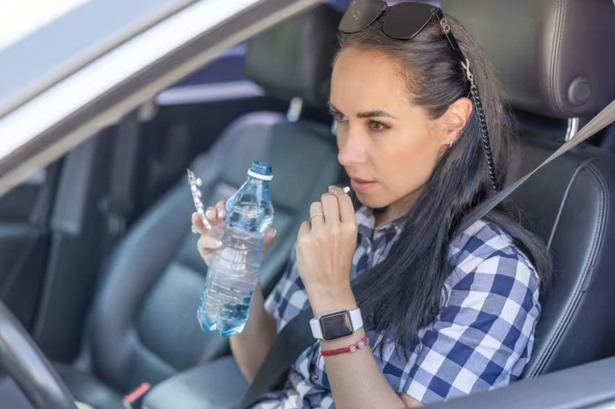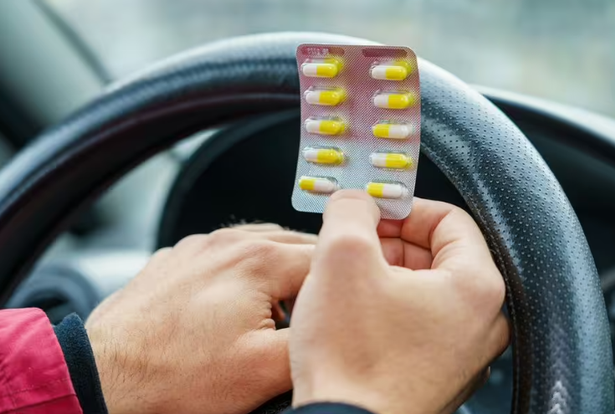Motorists may be told to stop driving if they are using any of these types of medications, experts have warned.Nicola Croal TV and showbiz reporter and Luke Chillingsworth
18:47, 07 Sep 2025
 Motorists taking certain medication could be ordered to stop driving(Image: Getty)
Motorists taking certain medication could be ordered to stop driving(Image: Getty)
The DVLA may tell drivers to “avoid driving” if they are taking any of these three types of medications, according to leading experts. Greg Wilson, founder of car insurance experts at Quotezone.co.uk claimed that motorists on certain “strong medications” would likely be advised not to get behind the wheel.
Almost all medications come with side effects, with the majority of prescription drugs and over-the-counter remedies being more potent than patients may believe. The experts said that pills that claim to cause any sort of “drowsiness” could be an issue for those planning to drive.
They added that common medications such as antidepressants could also be a cause for concern. Greg explained: “If you are on strong medications, it is likely that you will be recommended to avoid driving.
“Opioid painkillers, tranquillisers, and certain antidepressants are examples of medicines that can affect driving ability – as well as those that cause drowsiness or say ‘do not operate heavy machinery.”
 Drivers may be dangerous on the road under the influence of certain medicines(Image: Getty)
Drivers may be dangerous on the road under the influence of certain medicines(Image: Getty)
According to GOV.UK, motorists should speak with their doctor about whether they should continue to drive if they have been prescribed one of several drugs.
According to officials, these include amphetamines, for example dexamphetamine or selegiline, the Express reports.
Meanwhile, those taking clonazepam, diazepam, flunitrazepam, lorazepam or methadone could also be at risk.
Additionally, drivers taking morphine, opiate and opioid-based drugs, oxazepam and temazepam will also need to speak to their doctor before travelling.
Join the Daily Record’s WhatsApp community here and get the latest news sent straight to your messages.
GOV.UK added: “It’s illegal in England, Scotland and Wales to drive with legal drugs in your body if it impairs your driving. It’s an offence to drive if you have over the specified limits of certain drugs in your blood and you have not been prescribed them.”
According to Mind, law enforcement are able to test drivers who they believe have taken legal drugs above the specified levels.
However, they confirmed that motorists who are taking prescription medicines correctly and have not suffered any side effects could be safe to continue driving.
They explained: “If you’re taking your medicine as directed by your doctor and your driving is not impaired, then you aren’t breaking the law.
“Check the leaflet that comes with your medicine for information on how it might affect your driving. You may wish to avoid driving while taking this medicine until you know how it affects you.”
Penalties for drug driving may include a minimum one year driving ban, an unlimited fine, up to six years in prison and it being stated on your criminal record.
Your driving licence will also show you’ve been convicted for drug driving. This will last for 11 years.
The maximum penalty for causing death by careless driving under the influence of drugs is life imprisonment.

